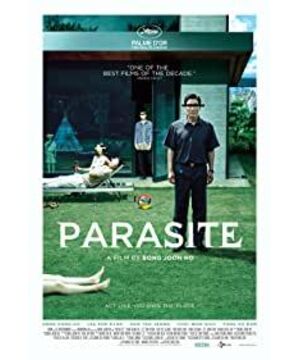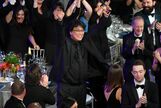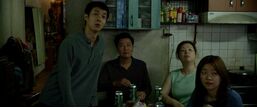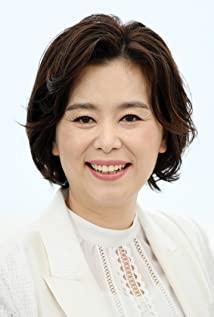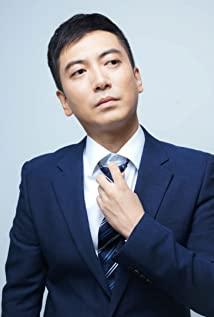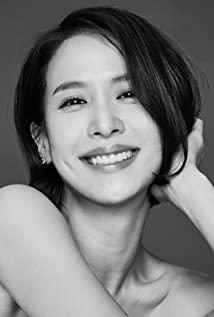The "Korean Wave Strange Scare" launched by Junhao in 2006, its English name is "The Host" (host), which can either refer to the monster in the river that wants to eat humans, or the fictional virus that wants to take humans. As a host, or a metaphor for the interdependent political relationship between the United States and South Korea. In 2019, Feng Junhao's "Parasite" (Parasite), which corresponds to "The Host" in the title! Both films break through the limitations of genre films, and both make full use of the form of "tragicomedy" (putting a lot of comedy elements into a sad story), and both directly point to some problems or drawbacks in modern society ( Since "Memories of Murder", Feng Junhao has been able to skillfully match the story told in the film with the general background of society and even institutional issues).
Both "Korean Wave" and "High-level Parasites" highlight the "family" as a "role" that belongs to the whole, and the members of each family will have a feeling of "falling together". What’s interesting is that both movies have scenes where the mobile phone “can’t receive” (no signal or WiFi network); two families in the two movies have family members who are good at a certain sports (the former is Women's archery, the latter is women's hammer); and when the two families were in a difficult situation, they were also "coincidentally" arranged in the stadium scene (the former held a mass funeral in the stadium, and the latter was after heavy rain and floods. The gym became their temporary shelter).
The first shot of "The High Parasites" is at the same level as the floor of the inner street (as shown in the picture above), and the camera suddenly moves down, immediately revealing the social status of the protagonist's family and their poverty situation. This family of four is trapped in a basement-like house (there is an echo in the middle and back parts of the movie), but because of the introduction/pull of the classmates of brother Ki Woo (played by Choi Woo Shik), they have the opportunity to gradually Contact with, get close to, and "parasitic" in the upper-class mansion. The protagonist's family achieves their goals by concealing and deceiving, or by unscrupulous means, which reflects that if the lower class wants to go up, they often cannot rely on the rules and regulations. The thirst for money, because they think "money is an iron, it can iron everything out", and those misfortunes in life can be solved by money (from the narrow window of the poor family, it can reflect their vision of the world , or limitations in ideas and desires).
However, in contrast, the wealthy family members in the movie are relatively simple and do not have so much scheming (especially the hostess' family). , depending on money is not an iron that can iron out all troubles (even if you have money, you don't necessarily need a teacher who can discipline your children), or it is easier to obtain a so-called noble quality. No wonder Chung Sook, the mother character in a poor family, would say, "If I had money, I would be kind too!" , members of wealthy families (especially the male host's family) will also have their own calculations, and the performance of their mouths is not true (the president said that he was not testing Kee-taek's driving skills, but he paid attention to whether the coffee in the cup was "swaying". ), will also inadvertently reveal the unacceptable smell of the poor, or have a hypocritical side - the usually serious president and the president's wife, but when they have sex in the hall, they show that they pretended to feel that they were Shame on those behavioral preferences! (This scene is very interesting to arrange the rich people to have sex on the sofa, but the poor families are forced to hide under the coffee table, one up and one down, implying the social position of the rich and the poor, and the camera goes down again Move, pat the poor families at the bottom.)
An important clue in "The High Parasites" is a painting drawn by Dao Song, a child from a wealthy family. The figure in this painting was once mistaken by Dosong's mother as a self-portrait of Dosong; but we know from the development of the later story that what Dosong painted was the "ghost" he saw at home when he was in first grade - that The old man who has been hiding in the basement of the big house (the image of this "ghost" is quite similar to the image of him when he kills like crazy). The old man who lives at the bottom actually belongs to the "parasitic family". He is mistaken for Dosong in the painting, which may imply that the boundary between the host (Dosong) and the parasitic family is blurred - poor families can take advantage of the rich. When the family members went out to camp, they temporarily became the owners of the big house; and the president and his wife also had some special sexual fetishes that they once thought were indecent. As for the addition of Indian elements, it also highlights that their "roles" can be changed - the Indian costumes of Dawson make me feel that poor families are like intruders (and make the hall that contains the artistic soul of Teacher Nangong) Messy), but when Keizer and the president are also wearing Indian headdresses, we may find that the poor are also like the Indians who are constantly being plundered by European colonizers (the rich).
In Doson's painting, the triangle in the lower right corner looks like Doson's tent (the part circled in purple in the picture above), but it can also be interpreted as a sun pyramid (the sun in the upper left corner of the painting and the arrow on the triangle are both is yellow). The Pyramid of the Sun is the place where the ancient Indians worshipped the sun god, and Dosong's mother said that Dosong's tent should be surrounded by a round platform, which also highlights that the tent is like an altar. The June that the movie deliberately mentions is the Sun Festival of the ancient Indians, when the old man in the basement made crazy murders in the bright sunshine (pay attention to this), which also corresponds to the ancient Indians sacrificing the sun by killing methods. God's tradition. Such a brutal picture may have a deeper meaning, especially when the former housekeeper deliberately imitated the tone of speech of the North Koreans after debunking the conspiracy of the protagonists, and combined with the image of the "Golden Sun", the irony is even more apparent.
As for the poor family in this film, their "invasion" or infiltration operation was very smooth before the secret room of the big house was released, showing an escalating trend; but when the family followed the rich man's former housekeeper, When they walked into the secret room together, their fate went downhill just like the direction of the basement. Then, after the poor family members finally escaped from the big house, the camera kept filming them, walking embarrassedly towards the place below (where the bottom of the society gathered) (as shown in the picture below), and hinted that they would continue to " fall".
At this time, the sky was still raining heavily (except for "Train of the Last Days", most of Feng Junhao's works will have rain scenes), and the movie appeared like the great flood in "Old Testament" (the front Duosong's mother's dialogue has already paved the way for the flood), and with clever editing, the poor man's struggle in the flood and the old man's cry for help in the basement are spliced together. Facing the house where the poor family was soaked, the father Ki-taek seemed to have been wiped out by the flood to continue his action, but the son Ki-woo still had the desire to go up; and the stone under the sewage suddenly floated up (when When Ki-woo's classmates sent this stone, they had already sowed the seeds of desire in their home), implying that the fire of Ki-woo's desire was burning more vigorously (he was holding the stone all the time), or implied What he is after is actually just like the garden view outside the window of the rich family, which is more for viewing. Afterwards, Ki-woo was not crushed to death).
In the end, Ji Woo stopped hugging the stone and put it in the clear water (the water can be compared with the sewage before); this seems to tell everyone that Ji Woo broke free from greed, but his The action took place in his sleep, and the truth may not have happened yet. And in the confession at the end of the movie, Ki Woo still hasn't let go of his desire to make a lot of money (although it is motivated by saving his father), so it is still possible for him to fall into the tragic whirlpool of the previous story ( From this also reflects the fate of the poor). "Do you know what plan will never fail?" is "no plan". Ki-taek's words foreshadowed that his son's plan was bound to fail, and Ki-woo couldn't be as calm and natural as "here" (in the big house/high society) as he asked the president's daughter. At the end of the movie, it snows outside the window (the window of the poor family is very different from the window of the rich family) (the same is true at the end of "Korean Wave"), and the scene is the same as at the beginning of the film, From top to bottom, it moved to Ji Yu; at this time, the dream ended and everything was the same as before, director Bong Joon Ho once again made the characters in his works break the fourth wall, look at the audience, and break the Space - this is limited by the elements that have been heavily displayed in this film.
Many people may not be able to accept the scene where Keeze kills the president, but this film has repeatedly arranged for the president and his wife to dislike Keeze or the smell of a poor family, plus the president is only for himself. The child ignores Keizer's seriously injured daughter, so I can understand the action of Keizer, who is kind and gentle (and sometimes people do outrageous behaviors due to impulsive impulses in life). The script of the movie "The High Parasites" constantly echoes back and forth. As mentioned earlier, Zhongshu once participated in the women's hammer game, so she had the strength to subdue the old man who was out of control; and the method used by the old man to ask for help (via Morse code) , was later used by Keizer to send messages to the outside world; and the former housekeeper cut off the monitor's wire (as shown in the picture above) because she did not want to be known by the wealthy family that she had entered the big house. to hide, not to be discovered...
In such an interlocking but overly calculated movie, there are still some problems that cannot be ignored. For example, poor family members learn to fold pizza boxes according to online teaching clips, but 1/4 of the boxes are not. Qualified; from here, it can be conveyed that their "watching" is unable to grasp the reality or can not be successful, and the giant floor-to-ceiling windows in the rich man's house actually encourage them (and the audience) to watch, or bring the protagonist's family. Upward desires, hopes, but all are "illusions". This important setting, and poor family members can only learn through the mobile phone screen that is smaller than the window of the shabby house (especially Zhongshu's housekeeping skills), has no practical experience (and can't even fold a pizza box) ), but it can meet the needs of the rich family, which should be quite high, and does not reveal any flaws, forming a contradiction. And the coincidences in the film (the rich family who went camping suddenly came home), and the comedy about how the poor family went to hide, degraded the film (nothing could have been guessed before, a Cannes won The film of the Palme d'Or actually has the kind of plot design of Wang Jing's works). As for the addition of Indian elements, or the scene where the former housekeeper imitated the way North Koreans spoke, it was also quite deliberate and abrupt. Director Feng Junhao carefully crafted this film, just like the big house designed by Teacher Nangong. Although it combines plants and garden scenery, it cannot erase the coldness of the house, or it is not very natural and unreal (more like a There are more galleries for viewing than homes). Feng Junhao's "plan", like the previous actions of the protagonist's family, seems to be foolproof, but to apply Ki Ze's dialogue: once there is a "plan", there will be its loopholes and its disappointments. place.
View more about Parasite reviews


